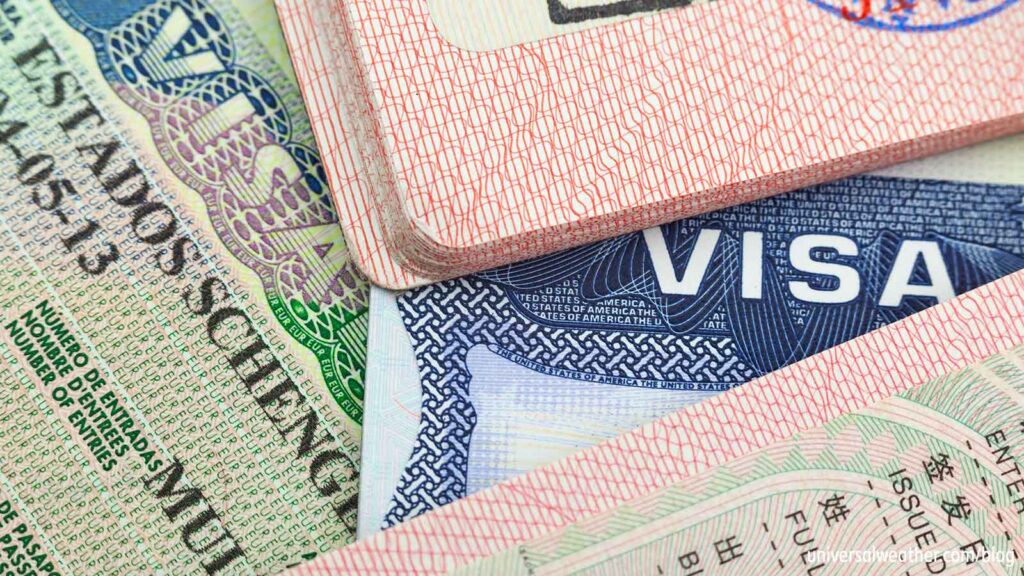EU Regulatory Update: Passport Expiration Dates, Part 1 – Rule Changes

This is a post by author Stefano Bruno. Stefano is the station manager for Universal Aviation Italy – Milan-Linate, which has Fixed-Base Operator (FBO) and ground support locations at Rome (LIRA), Venice (LIPZ), Milan-Linate (LIML), and Milan-Malpensa (LIMC). Stefano is an expert on business aircraft operations in Italy. He can be contacted at stefanobruno@universalaviation.aero.
This business aviation blog post is part of a series on passport requirements for the European Union.
Beginning June 26, 2013 a regulatory amendment was put into effect by the European Parliament for European Union (EU) border control and immigration requirements. This regulation governs movement of all non-EU nationalities across EU borders and expands on previous regulations put in place in 2006.
The following is an overview of what you need to know:
1. Regulatory overview
The free movement of people within the Schengen area has been one of the biggest achievements of European integration. The abolition of internal borders, however, involves certain accompanying regulations. Back in 2006 EC Regulation 562/2006 established a Community Code on rules governing movement of persons across Schengen borders. Last year, on June 26, 2013, amendments to these regulations went into effect.
2. New regulation specifics
The new regulation (EU 610/2013) updates existing “Rules for border check for EU countries” as specified in EU 562/2006. This regulation includes all the rules previously adopted by European Parliament for border control and immigration requirements. While the basic text remains unchanged, EU 610/2013 integrates a new section regarding requirements for non-EU citizen immigration. Note that these new requirements, effective since June 26, 2013, are applicable only for the EU and do not apply to every single European country as a whole. Denmark, the UK (including Northern Ireland) and Ireland are not covered by these regulations.
3. Amended requirements
For intended stays in any territory of an EU Member State, for a duration of no more than 90 days in any 180 day period, entry conditions of third party nationals are as follows:
- they must be in possession of a valid passport entitling the holder to enter the EU
- passport validity must extend at least three months beyond the intended date of departure from the EU Member State territory
- the passport must have been issued within the previous 10 years
4. Covered individuals
These rules are applicable to all non-EU nationals traveling to the EU via business aircraft, commercial airlines or any other mode of transport. Pilots and crewmembers, however, are exempted from these new requirements. By way of derogation from Article 5, holders of pilot’s licenses or crew member certificates – as provided for in Annex 9 of the Civil Aviation Convention of December 7, 1944 – may, in the course of their duties:
- embark/disembark at a stop over point within the EU or at an airport of arrival situated within a Member State
- travel, by any means of transport, to an airport situated within the territory of a Member State in order to embark on an aircraft departing from that airport
5. Other exemptions
This new rule applies to all non pilot/crewmember nationals of non-EU countries. No specific nationalities are exempt from these requirements. Only in situations of justified emergencies, such as health issues, will authorities allow exemptions to these mandated requirements.
6. Additional information
For more information on EU border controls and immigration requirements see the EU regulation 610/2013.
Conclusion
It’s important that operators be aware of these new regulatory requirements and who is covered by these regulations. Despite recent regulatory changes active crew members retain the additional regulatory flexibilities allowed to them previously.
Questions?
If you have any questions about this article or would like assistance planning your next trip to Italy, contact me at stefanobruno@universalaviation.aero.
Stay tuned for Part 2, which covers specific considerations pertaining to passport requirements in the EU.




